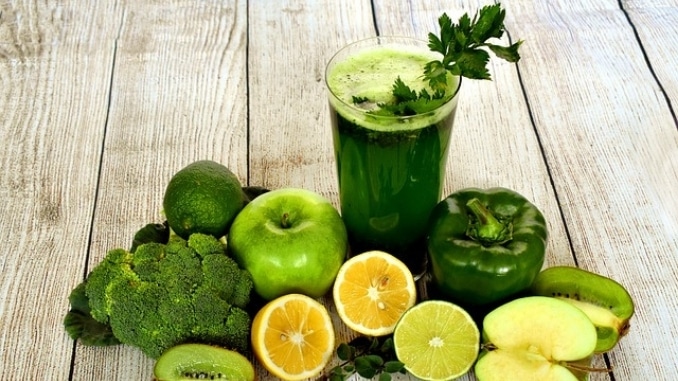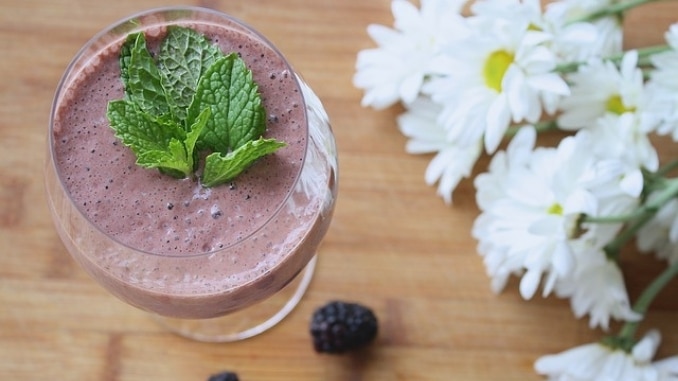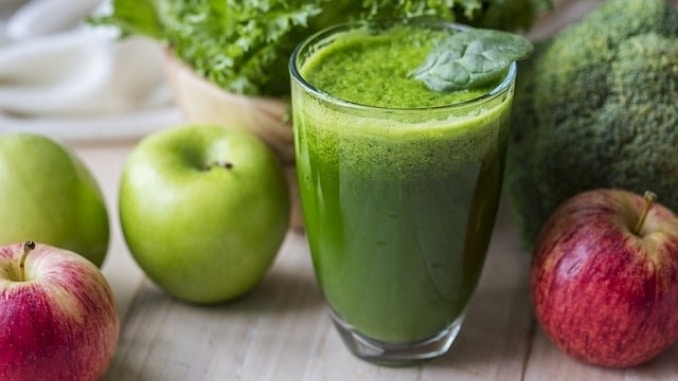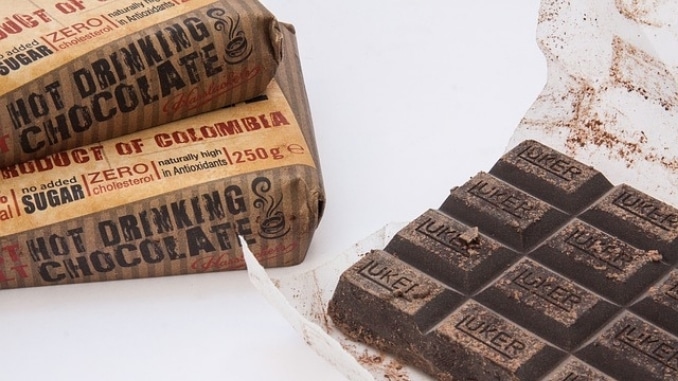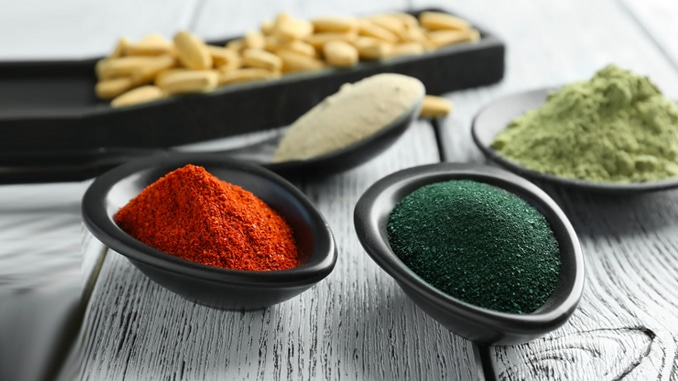
We’ve been told for years now that we need more antioxidants to be healthy. That’s one of the main reasons why scientists recommend we get more fruits and vegetables in our diet.
In response to the demand for antioxidants, many manufacturers have created new antioxidant supplements, often in powder form, to sell to consumers looking to stay as healthy as possible.
The question is, are these supplements good for you?
What Are Antioxidants?
Antioxidants are powerful substances present in fruits, vegetables, some beverages, spices, and herbs, which have been found to have certain health benefits. Although there are many different kinds of antioxidants, and all of them have their own unique properties, there’s one thing they all share — they neutralize free radicals.
Take a moment to think back to your high school chemistry class. You may remember that for a molecule to be stable, it must have a set number of electrons. Electrons are happiest and most stable when they exist in pairs. If a molecule loses an electron, it becomes unstable. Suddenly, it has become a free radical.
A free radical is a highly reactive molecule, usually made of oxygen, but not always. That unstable molecule cares about one thing — getting the electron it needs — so it goes around looking to steal one from another molecule. When it succeeds, it can damage that molecule — a process called “oxidation.”
Complete with the electron it was looking for, the free radical becomes stable again, but it causes the “victim” molecule to become an unstable free radical, and the process starts again. When we have a large number of these unstable free radicals in our system, we’re said to suffer from excess oxidation or “oxidative stress,” which has been linked to a number of health problems, including aging, heart disease, Alzheimer’s disease, and cancer.
There are a number of things that can cause free radicals to form in the first place. They’re a natural byproduct of cell metabolism for one, which means we naturally produce free radicals in our bodies. Mental stress, alcohol, certain fats in the diet, excessive exercise, cigarette smoke, X-rays, ozone, water and air pollution, pesticides and herbicides, and other factors can also create free radicals.
Antioxidants are molecules that can help neutralize free radicals. They can donate an electron to the free radical without becoming free radicals themselves. That means they can stop the cycle of oxidative stress and reduce cell damage. Studies have associated antioxidants in food (not supplements) with helping reduce the risk of cardiovascular disease, stroke, cancer, and cataracts.
Good examples of antioxidants include vitamins C and E, selenium and lycopene, among many others. We get them from our diet, but some of our own cells can also produce antioxidants to fight off damaging free radicals.
Keep in mind that all this information comes from scientific theory, mostly based on research on cells in the laboratory. Whether antioxidants work in the body as they do in the lab is still uncertain. We do know that eating more fruits and vegetables is good for us, but we’re not sure if consuming extra antioxidants provides the health benefits some believe it does.
Are Free Radicals All Bad?
Research shows that free radicals create some benefits in the body. In a 2011 study, researchers found that under normal conditions, free radicals acted as important signal substances, contributing to the heart being able to pump more blood under stress-filled situations.
Another study found that free radicals helped promote tissue regeneration after an injury, encouraging wound healing while another suggested free radicals activated a signaling pathway within cells, triggering changes in gene expression and altering the cells’ sensitivity to stress to promote survival.
Additional research shows that free radicals play important roles in synthesizing energy, regulating certain bodily functions and boosting the immune system. In 2009, scientists reported that increased production of free radicals was “crucial” to building muscle in response to exercise training.
The important thing, as scientists will tell you is the balance. We need the proper balance between free radicals and antioxidants to experience optimal health. The typical Western diet, which is high in processed foods and saturated fats, is believed to lead to an excess of free radicals, which then require more antioxidants to keep them in check. This led to the belief that the more antioxidants, the better, but recent research has begun to question that thinking.
Can You Get Too Many Antioxidants?
If you’re getting your antioxidants from healthy foods like fruits and vegetables, there is nothing to say that you might consume too much, at least where antioxidant levels are concerned. When it comes to adding on supplements, however, it’s not quite so clear.
Scientists are just beginning to dive into this research, but studies so far have shown that in some instances, taking antioxidant supplements at high concentrations may not provide any benefits and, in some cases, may cause harm. Just like anything in life, it is possible to get too much of a good thing.
In the CARET study, for example, scientists tested the effects of popular antioxidant supplements beta-carotene and vitamin E in people at high risk for lung cancer. They thought the antioxidants would help reduce the risk since free radicals have been found to cause cancer, but results showed the opposite. The supplements caused an increase in tumors.
In the SELECT study, researchers tested more than 35,000 men from the U.S., Canada, and Puerto Rico to see if supplementation with antioxidants selenium and vitamin E would help prevent prostate, lung, colorectal and other cancers. They found no significant differences between those taking the supplements and those not taking them.
In the HOPE-TOO study, researchers studied daily supplementation with vitamin E on people diagnosed with cardiovascular disease or diabetes and found that those taking vitamin E fared no better than those not taking it.
In a 2015 study, researchers reported that Chinese people with a high risk for liver cancer who had the highest intake of catechins — healthy antioxidants found in green tea — had an even greater liver cancer risk. That same year, an animal study showed that an excess of antioxidants could lead to the spread of skin cancer, with scientists theorizing that at excess amounts, antioxidants could protect cancer cells.
In a Cochrane review of 78 clinical trials involving nearly 300,000 participants who were taking antioxidant supplements including vitamins A, C, and E; selenium; and beta-carotene; researchers found that antioxidant use slightly increased mortality. In other words, those consuming the antioxidant supplements were slightly more likely to die than those not consuming them.
Researchers further discovered that the risk was associated with the use of beta-carotene, vitamin A and E, but was not associated with vitamin C or selenium. They concluded that “the current evidence does not support the use of antioxidant supplements in the general population or patients with various diseases.”
Other studies, however, have found that antioxidant supplements may be helpful. The most reliable so far as the Age-Related Eye Disease Study (AREDS) led by the National Eye Institute, which found that a combination of antioxidants ― vitamin C, vitamin E, and beta-carotene ― and zinc in supplements reduced the risk of developing advanced-stage, age-related macular degeneration by 25 percent in people who already had the intermediate stage of the disease, or who had the advanced stage in one eye. Antioxidants alone also reduced the risk of ever developing the disease by 17 percent.
A follow-up study (AREDS2) found that adding omega-3 fatty acids to the combination didn’t help but adding lutein and zeaxanthin ― two carotenoids naturally found in the eye ― did improve effectiveness in people who got only small amounts of these nutrients in their diets.
The bottom line at this point is that we need more large clinical studies to find out exactly the potential benefits or harms of taking antioxidant supplements.
Top 17 Antioxidant Powders
Considering the above information, it can be difficult to decide whether you should take antioxidant supplements or not. So far, the studies that either failed to find a benefit or that found harm focused on vitamin A, beta-carotene, vitamin E and selenium. So, we have eliminated these from our list below.
We all know, however, that sometimes it’s difficult to eat right. There are days when we can’t get all the fruits and vegetables we know we need, and we may need a boost. There are stressful times in life when we don’t eat well, and other times when we’re traveling that an antioxidant powder added to a morning smoothie or quick shake can provide us those nutrients we’d miss out on otherwise.
When looking for antioxidant powders, we recommend the following 17. Enjoy these when you need them, but don’t make the mistake of thinking more is better. Keep in mind — food is best, but if you can’t eat right, these supplements can help.
- Acai: These are native to the Amazon and are considered a relative of the blueberry, although they contain pits like apricots or olives. They are a powerful source of antioxidants and also may help improve cholesterol levels and boost brain function.
- Baobab: This is a tangy citrus fruit from an African tree. It’s a good source of antioxidants and may also help promote feelings of fullness and balance blood sugar levels.
- Berries: Any sort of berry powder will be rich in antioxidants as all berries have them in good supply. Berries are also great sources of fiber and can help tame inflammation.
- Camu Camu: Berries from the camu camu tree look like cherries and deliver a high amount of the antioxidant vitamin C, along with other antioxidants like lutein and zeaxanthin.
- Chia: Chia seeds are a good source of many nutrients, including omega-3 fatty acids, fiber, antioxidants, iron, and calcium. They are also a great source of protein.
- Cocoa: This powder is made by crushing cocoa beans, then removing the fat. It’s rich in polyphenols — plant compounds that work as antioxidants — and has been linked with reducing inflammation and blood pressure and improving blood sugar levels.
- Flax: Flaxseeds, like chia seeds, are rich in omega-3 fatty acids, fiber, protein and vitamins, and minerals. They also contain “lignans,” which are plant compounds with antioxidant properties.
- Glutathione: This antioxidant is one of those naturally created in the body. It is made primarily of amino acids glutamine, glycine and cysteine. Poor nutrition, stress and age can affect glutathione levels in the body. There are questions as to whether glutathione supplements are absorbed very well.
- Hemp: Hemp seeds come from the same Cannabis sativa plant used to manufacture marijuana, but they do not have any mind-altering effects. They are rich in healthy fatty acids, protein, and fiber and are also good sources of antioxidants vitamin E and zinc. Researchers believe that the cannabidiol (CBD) content in the seeds also provides antioxidant protection.
- Lutein: This is an important carotenoid for the eyes, which rely on it to keep the macula healthy. Lutein works as an antioxidant in other areas of the body too and may help protect the skin from damaging ultraviolet rays.
- Maca root: This comes from a Peruvian plant that grows in the Andes Mountains and is related to broccoli, cabbage and kale. Also called “Peruvian ginseng,” it serves as an antioxidant and has also been linked in studies to increased libido, reduced hot flashes and other symptoms of menopause and reducing anxiety.
- Matcha: Matcha is a type of green tea made by taking young tea leaves and grinding them into a powder, which is then mixed with hot water. It is rich in antioxidants called “catechins” and is particularly high in epigallocatechin gallate (EGCG), which has been associated with a number of health benefits including helping to prevent heart disease, type 2 diabetes and cancer.
- Moringa: Also known as the horseradish or drumstick tree, this small tree from India, Pakistan and Nepal is rich in nutrients like antioxidants vitamin A, C and E. It may also help to protect the cardiovascular system and support brain health.
- Mushroom: All mushrooms contain beta-glucans, which help fight inflammation and boost the immune system. They also have high amounts of ergothioneine and glutathione — both antioxidants.
- Resveratrol: This healthy compound is found in foods like grapes, red wine, and some berries and peanuts. It acts as a powerful antioxidant and has been linked with helping to lower blood pressure, improve blood cholesterol levels and slowing age-related cognitive decline.
- Spirulina: This is a type of blue-green algae that grows in both freshwater and saltwater. It’s packed with nutrients including protein, B vitamins, copper and iron as well as healthy fatty acids. It’s also a good source of antioxidants, including phycocyanin, which gives it its unique blue-green color.
- Turmeric: This is the spice that gives curry its yellow color and has been used in Indian cooking for thousands of years. The main compound in turmeric is called “curcumin,” and it’s been found to be a powerful antioxidant and anti-inflammatory.
For your guide to the best foods to heal your body, check out The Best Foods that Rapidly Slim & Heal in 7 Days, here!

